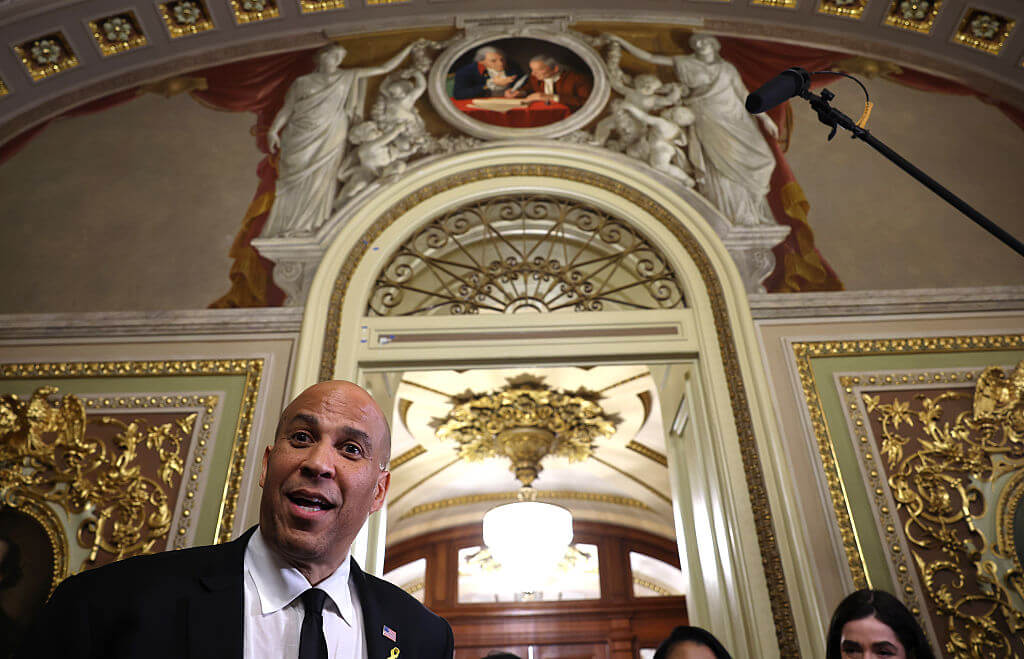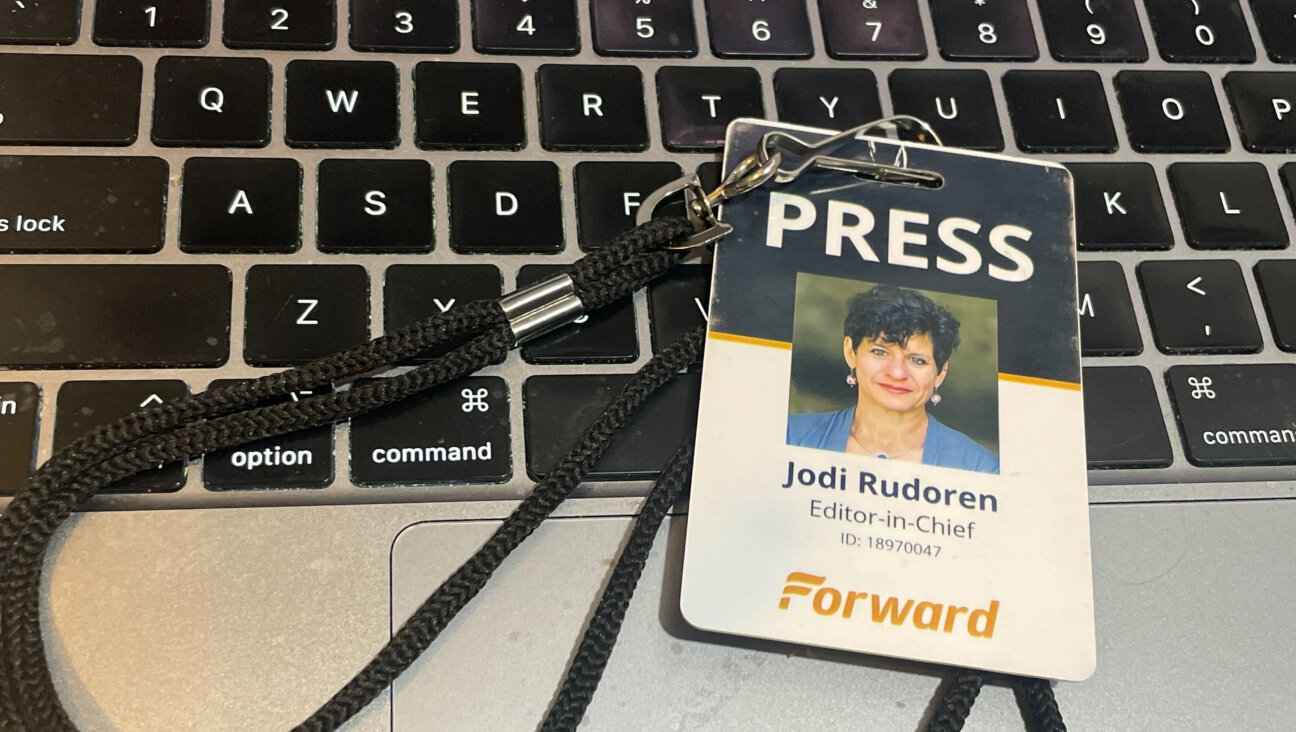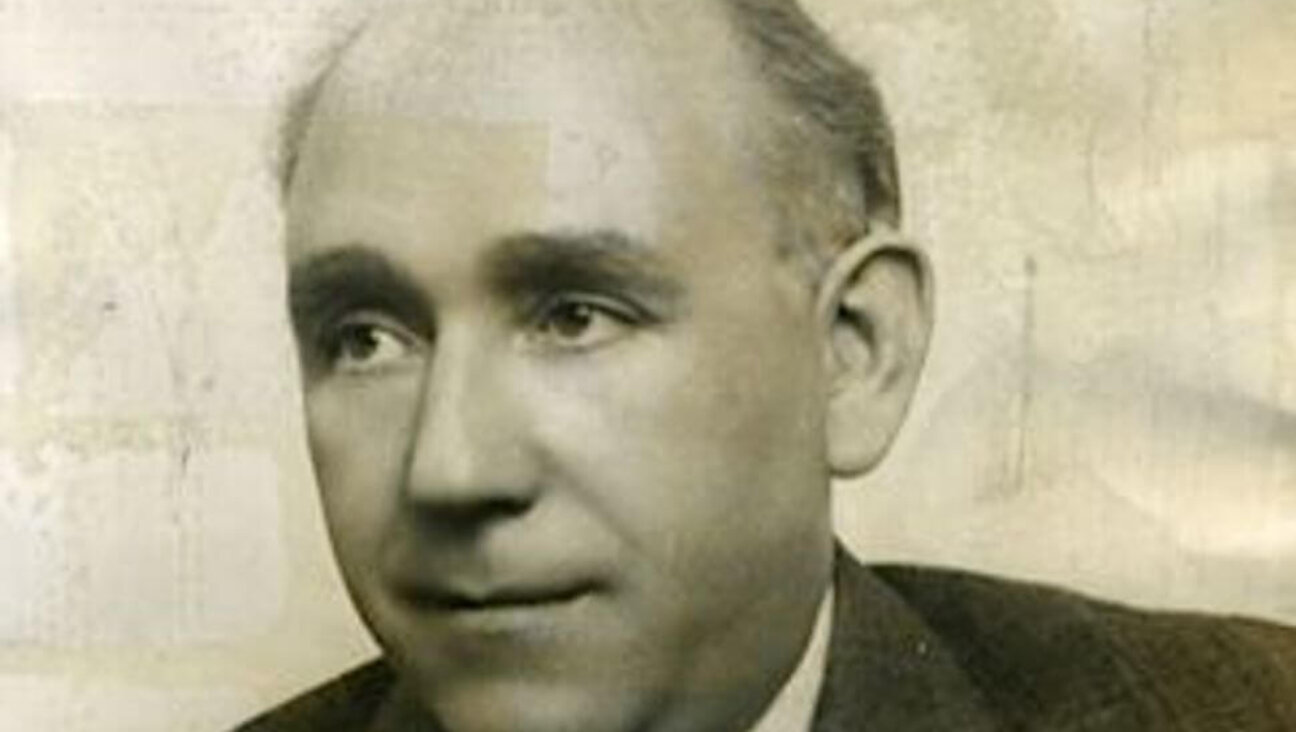The Jewish Press vs. Albert Einstein

Was Albert Einstein “the first post-Zionist”? Jason Maoz, editor of the right-wing Orthodox weekly, The Jewish Press, thinks so. In fact, Maoz goes so far as to suggest that the famed physicist could properly be labeled a “villain.”
“Einstein, because of his iconic status as the 20th century’s preeminent scientific genius, has largely escaped Jewish criticism for his antipathy to the notion of a Jewish state,” writes Maoz, who isn’t one to give the wild-haired physicist a free pass.
Alas, Maoz presents a very selective presentation of the relevant facts, cherry-picking quotes that paint Einstein in the worst possible light. True, Einstein was critical of political Zionism and disliked the idea of a specifically Jewish state. But Einstein also lent his voice and his celebrity to the Zionist cause of establishing a Jewish homeland in Palestine — and he did so at the early date of 1920. He remained a consistent and strong advocate of the effort to settle Jews in Palestine, and he publicly berated the Diaspora anti-Zionists of the American Council for Judaism, calling the group “a pitiable attempt to obtain favor and toleration from our enemies by betraying true Jewish ideals.” And when Israel was founded, he hailed the newborn state’s achievements, expressing his “joy and admiration” in a 1949 radio address.
Did history prove Einstein naïve and wrong (perhaps even somewhat dangerously so) on the question of a Jewish state? Certainly. His almost-unshakable faith in the immediate possibility of harmonious co-existence between Jews and Arabs in Palestine led him to overlook certain harsh realities. Einstein believed that if not for the policies of Britain, the Arabs of Palestine would have peacefully accepted the mass-influx of Jewish immigrants. This was clearly unrealistic. And that is why a Jewish state — with a Jewish army — was ultimately a historical necessity.
So he wasn’t exactly a Zionist visionary. But was he a villain? Hardly. Einstein was, for all his genius, human. He turned out to be less right than some Jews when it came to Zionism, and more right than others. And the stress Einstein placed on the vital importance of achieving co-existence and peace with the Arabs of Palestine was hardly villainous. It was, in fact, prescient.
So, if we are to stand in judgment of Einstein on this question, let us take into account the full historical record. (A good source, by the way, on Einstein’s views on Zionism and other political issues is a new volume titled “Einstein on Politics,” edited by David E. Rowe and Robert Schulmann.)
Interestingly, in the very same issue of The Jewish Press, there is a much more respectful remembrance of the murdered Jewish extremist Rabbi Meir Kahane, in the form of a softball interview with his widow (which, to be fair, was not conducted by Maoz). Maybe the Jewish Defense League founder escapes The Jewish Press’s criticism for his hateful and violent legacy because he was a columnist for the paper. Or perhaps The Jewish Press simply prefers Kahane’s vicious views to the humanism of Albert Einstein.
The Forward is free to read, but it isn’t free to produce

I hope you appreciated this article. Before you go, I’d like to ask you to please support the Forward.
At a time when other newsrooms are closing or cutting back, the Forward has removed its paywall and invested additional resources to report on the ground from Israel and around the U.S. on the impact of the war, rising antisemitism and polarized discourse.
Readers like you make it all possible. We’ve started our Passover Fundraising Drive, and we need 1,800 readers like you to step up to support the Forward by April 21. Members of the Forward board are even matching the first 1,000 gifts, up to $70,000.
This is a great time to support independent Jewish journalism, because every dollar goes twice as far.
— Rachel Fishman Feddersen, Publisher and CEO
2X match on all Passover gifts!
Most Popular
- 1

Fast Forward The NCAA men’s Final Four has 3 Jewish coaches
- 2

Fast Forward Cory Booker proclaims, ‘Hineni’ — I am here — 19 hours into anti-Trump Senate speech
- 3

News A Jewish Republican and Muslim Democrat are suddenly in a tight race for a special seat in Congress
- 4

Fast Forward Cory Booker’s rabbi has notes on Booker’s 25-hour speech
In Case You Missed It
-

Opinion This is my last column as editor of the Forward
-

Books Unwieldy, unnerving, and a masterpiece — the last great Yiddish novel has arrived
-

Fast Forward Texas bakery reportedly becomes first bagel shop to be named James Beard Award finalist
-

Fast Forward ‘That’s Simchas Torah’: The Jewish Val Kilmer moment you might have missed
-
Shop the Forward Store
100% of profits support our journalism
Republish This Story
Please read before republishing
We’re happy to make this story available to republish for free, unless it originated with JTA, Haaretz or another publication (as indicated on the article) and as long as you follow our guidelines.
You must comply with the following:
- Credit the Forward
- Retain our pixel
- Preserve our canonical link in Google search
- Add a noindex tag in Google search
See our full guidelines for more information, and this guide for detail about canonical URLs.
To republish, copy the HTML by clicking on the yellow button to the right; it includes our tracking pixel, all paragraph styles and hyperlinks, the author byline and credit to the Forward. It does not include images; to avoid copyright violations, you must add them manually, following our guidelines. Please email us at [email protected], subject line “republish,” with any questions or to let us know what stories you’re picking up.















